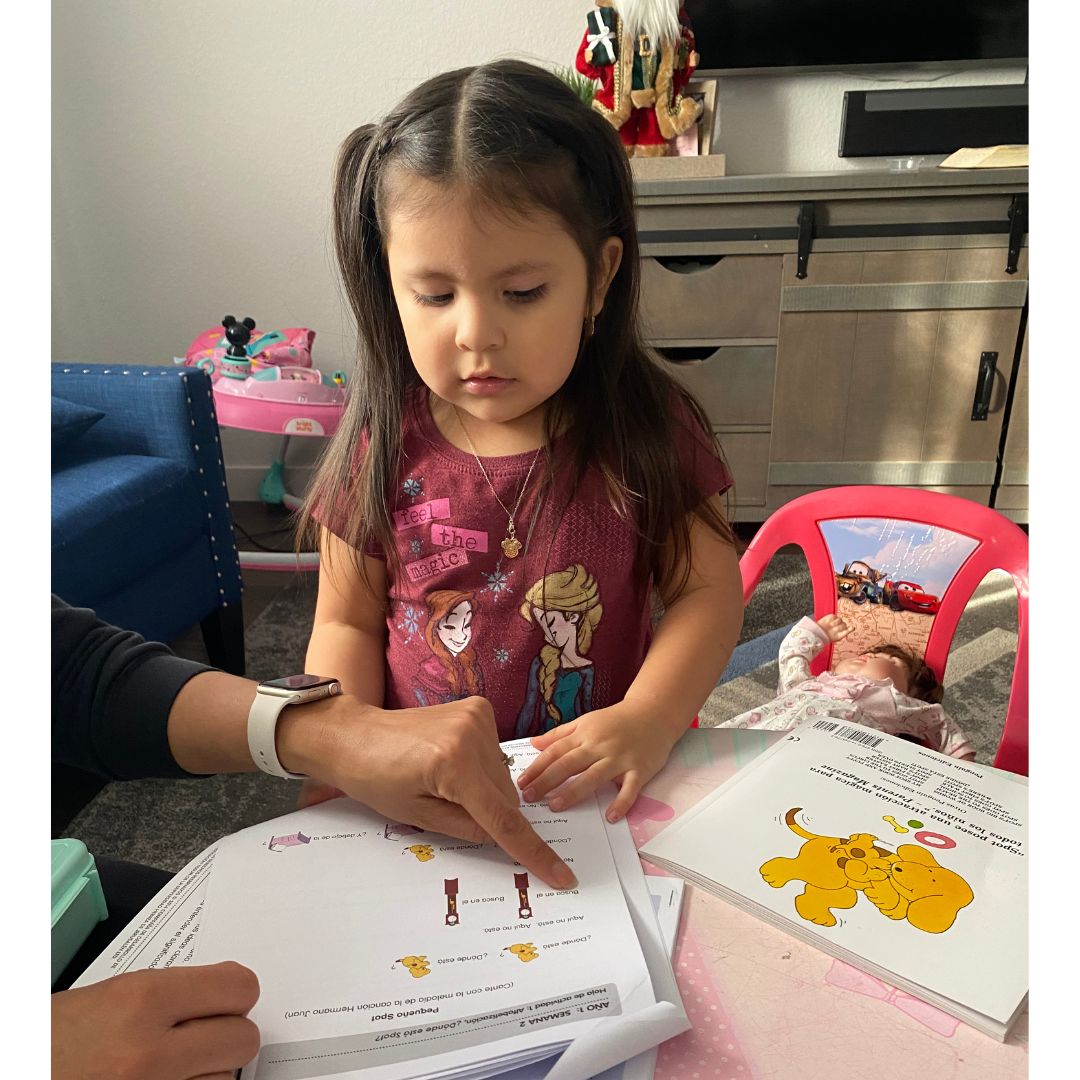
Along with our Educare school and community-based partnership programs, Clayton has an extensive network of educators who work directly out of our families’ homes. Our home-based program, which saw 45 children and those from our partner Denver Great Kids enrolled for the 2022-2023 school year, is split into two state programs: Early Head Start (EHS) and Head Start (HS). EHS was established in 1995 by the Office of Head Start here at Clayton and was primarily home-based before even our Educare school and community-based programs. The introduction to EHS occurred after Clayton shifted its focus to early childhood education. HS was started soon after and became one of the first Home Instruction for Parents of Preschool Youngsters (HIPPY) enrichment programs here in Colorado. Recently, we were able to speak with Sonia Cabrales, Manager of Home-Based Early Head Start, and Colleen Karberg, Manager of Home-Based Head Start, to discuss what these programs entail including curriculum, the families who participate, and the ultimate educational impact for our students and families involved in this wonderful alternative to more traditional school models.
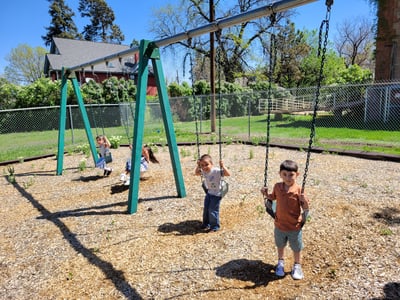
Early Head Start
The first level, Early Head Start, is geared for infants to children three years of age and is year-round for families. This program employs the “Parents for Healthy Babies” curriculum which covers a wide range of topics including nutrition, hygiene, and an array of resources. Clayton staff, known as Child Family Educators (CFEs), or home visitors, come to one of our families’ homes to teach individualized lessons, using the curriculum, over a 90-minute session once a week. Currently, there are 52 children, 6 pre-natal infants, and an additional 12 children from the Denver Great Kids program that partners with the Office of Head Start.
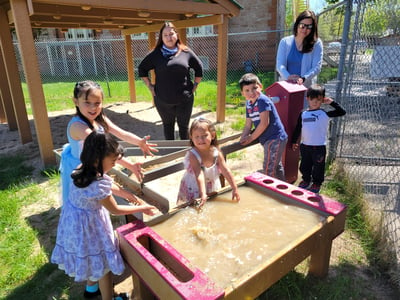
Head Start, Program Promotion, and the Application Process
The second level, Head Start, is for children 3 to 5 years of age and is considered a “home instruction preschool”. Child Family Educators also spend 90 minutes once a week at one of their assigned families’ homes and split their time between role play and instruction. For the first half of the session, Clayton educators will “play act” with the children’s parents where the staff member pretends to be the parent and the parent will act like their children. In this way, children perceive and learn how to act in a classroom setting, even in their own home, and understand what expectations there are for learning with their home teacher. In addition, parents learn firsthand how a class will be taught in their own home and understand what their children will be learning about. The next half of the session engages the students in an actual lesson that is tailored to the student’s level and interests. The activities that intimately involve the child(ren), parent(s), and home visitor are provided to the families in activity packets with around 5 activities for everyone involved to participate in and complete. The lesson activities cover 5 basic subjects including language, literacy, motor skills, science, and math. Parents are then expected to engage with their children through these 5 activities over the course of the week until the home visitor returns for another round of role play and teaching sessions. During the home lessons, students may be involved with anything from arts and crafts, identifying colors, and more. There are now around 36 children enrolled in the program.
Both the Early Head Start and Head Start programs have mainly grown through word of mouth promotion initiated by past and current families enrolled along with friends of these families. Other efforts to promote these programs by Clayton staff have included more grass-roots marketing efforts through emails and distribution of flyers and door hangers around Denver homes. Once a family shows interest and has completed the application proving their eligibility to be enrolled in the program, based on a number of qualifying factors including household income and the needs of the families, our staff will then be assigned to specific families under their care. All families are then interviewed, and their children are accessed for their learning abilities. Once the preliminary stage is completed, the Child Family Educators will then begin conversations with their assigned families during this enrollment phase to learn of the families’ expectations for their children in this program. During these conversations related to education, CFEs are also informed about their families’ lifestyles including their cultural backgrounds and teaching styles for their children.
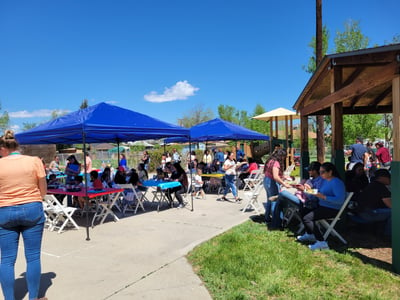
Becoming Part of a Family
One of the most challenging yet rewarding aspects of being a home-based visiting educator is learning to connect with families in their own space and time. As our Child Family Educators are working directly out of people's homes, they must respect the families that they serve, which encompasses all related aspects of their lives. Over time, the CFEs become unofficial members of the families that they serve. Each day is different for our educators entering into one of their families' houses and this varied working environment becomes something of an expectation given the families that they serve. On some days when a CFE is expecting to teach a full lesson, they may need to spend part or all of their weekly session providing a reassuring ear and a kind word regarding the issues that a family is facing. In the case of our families, our home visitors have to deal with anything related to substance abuse, incarceration, or recent deaths in the family under their care. As both managers of the programs indicated, each family is unique in how they live, how they keep up their home, and the cultural traditions and values that inform the way the parents or primary caregivers ultimately raise their children. The option to have children educated out of a home space is one made out of choice and necessity, based on what is most convenient for the families who are involved in the programs. Such issues like transportation and even the high cost of sending a child to a physical early childhood center may not be the best option for families who prefer to keep their children close to them in the earliest stages of life. And for those whose primary and native languages are other than English, our programs are the best and most viable option for our families.
As discussed with both managers, our families are diverse and the Child Family Educators learn first-hand what it is like to be immersed in other people’s cultures. From taking off their shoes before entering the home space to knowing what times the families wish to not have visitors in their own homes, Clayton staff have to form such intimate relationships in order to establish trust and good rapport, having to work in all kinds of unique home situations. An interesting fact that the CFEs have learned is that collectively both mother and father figures spend an equal amount of time and attention on their children's education and imparting knowledge of their family's set of traditions. CFEs thus become fully immersed in their families’ lives, even partaking in family meals and holiday traditions together. With many of our families knowing Spanish as their first language, several of our CFEs have to be dual language learners so they are able to utilize their skills to connect with their families in this shared way. In addition, we have a few families who speak both Farsi and English that have originally come from Afghanistan with half of them having come to the United States as refugees. As a result, our CFEs have to do their part to research and be the best resources and guides to help address the situations that families have been involved in and ultimately find safety and security in their new homes here in the United States.
Home-Based Educators and Socialization Events
The Child Family Educator (CFE) takes on a multi-functioning role as an educator, a social worker, and ultimately an advocate for the family’s health and well-being. Our colleagues, who are out in the field every day, provide the opportunity for the whole family, including children and their parents and caregivers, to learn together. This integrative form of teaching ultimately sets up the entire family for success later on in life so that the transition from the home-based setting into kindergarten and elementary school is seamless. As Ms. Karberg in the Head Start program indicated, “We guide, facilitate and empower the parents as they are their children’s first teachers.” To give some idea of the workload facing Clayton staff, our home visiting educators are assigned between 12 to 14 families in the space of a year. A typical work day will involve the CFE visiting between 4 to 5 families a day, including time spent on transportation to and from houses and the occasional campus visits. Across the Clayton organization, our home-based CFEs' work schedules have to be the most flexible work-life balance given they have very little office time apart from days that are spent on campus for our educators to attend joint meetings and trainings together, along with coordinating and hosting family events for either the Early Head Start or Head Start programs along with joint program events.
Despite the seemingly distant removal from a brick-and-mortar school setting, home-based families are able to connect together during certain times of the year which are known as “socializations” by our home-based managers and staff. From periodic to twice a month occurrences, families are invited to attend family-friendly events around the city and participate in certain activities, arranged by their assigned CFEs as well as collective group outings from both of the home-based programs. These events may include visits to some of our partner organizations such as the Denver Zoo, or a branch of the Denver Public Library for storytelling days. In addition, our home-based families are able to come to the Clayton campus to be taught lessons in a real-life classroom setting arranged in the basement of our home and community-based offices. These learning spaces have everything a real classroom would offer, including a beautiful playground that has recently been renovated for our families to enjoy in both the EHS and HS programs. As the heads of both programs attested, these socializations provide both parents and caregivers and their children the opportunity to get to know each other creating valuable life connections, have fun together through allotted playtimes, and come to the understanding that they are all in this together.
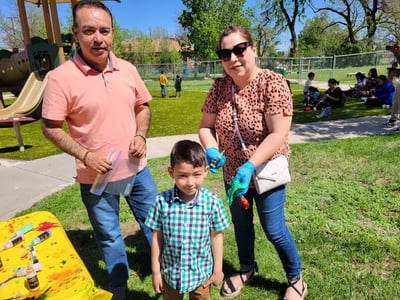
Home and the Classroom
Clayton’s home-based programs help to establish a family’s educational goals and expectations setting up their children for success in the future. School readiness lays the foundation for learning which helps each family under our care to understand in the simplest of terms all that they will soon be involved in when their children move up to higher grades. In addition to attending to the educational needs of our children, the home-based programs also deal with the socio-emotional and mental challenges faced by families by providing relevant resources to help them advance and gain back some sovereignty in their lives. Resources also help our families to feel more at ease and making the comfortable decision to later send their children to physical locations outside of the home setting for schooling. Over the years, we have heard that families enrolled in these programs feel a sense of pride in their child's education. They know they are being taken care of by some of the best educators in early childhood as expectations are clearly laid out and they form intimate relationships with their individually selected home visitor. Families anticipate when a CFE will come calling at their house and frequently attend the socializations held on and off campus. A sense of ownership prevails knowing their child's education is in good hands and that they also have a campus they can call their own whenever they wish to connect with other families enrolled in either the Early Head Start or Head Start programs. And in the end, both Clayton educators and families learn from each other. Life lessons are established and the family eagerly awaits when their educator will take off their shoes and be welcomed into their home space as one among them.
To learn more about the Home Visitor program for Early Head Start and Head Start, please read through the Home Visitor Supervisor's Handbook on the Head Start website.









